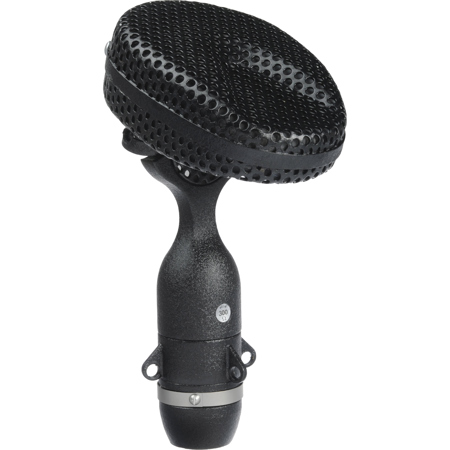
Overview
Compare
Specs
Protection
Q&A
Questions & Answers
Shopper : Why Did You Choose This?Jack M : Legendary microphones. Will be using a stereo pair for drum overheads. As individual mics, good for so many things.
Reviews about this item
Review Summary
Select a plan in the Add Protection section above and purchase with this product by clicking “Add to Cart”.
TRUSTED PROTECTION PLANS, EXCEPTIONAL SERVICE.
Invest In Your Gear and Peace Of Mind!
Accidents happen. Protect your favorite Adorama products and purchase a protection plan to stay covered from accidental damage, mechanical or electrical failures, and more.
Repair or Replacement
If we can’t fix it, we’ll replace it at no additional cost.
Accidental Damage
Protect your product from drops, spills, and more.
Peace of Mind
Enjoy your gear without fear. We have you covered!
Failure Protection
When regular use of your product over time results in mechanical or electrical failure.
Zero Deductible
We will never charge you a deductible after the purchase of a plan.
Customer-Focused Support
Our claims process is simple & easy and our customer service team is happy to help.
Adorama Protect powered by Extend is available for purchase to customers in the United States. Not available for international or U.S. territories purchases. Plans on open box items do not cover pre-existing damage.
Adorama Protect plans are available for ABS clients. If you have any questions or require assistanse, please call 800-223-2500
Browse our FAQ
Coles Electroacoustics Coles 4038 Studio Ribbon Microphone, Matched Pair Specifications
Operating Principle
Pressure Gradient
Transducer
Ribbon
Polar Pattern
Figure-8
Frequency Range
30 Hz to 15 kHz
Impedance
300 Ohms
Sensitivity
-65 dB
Output Connectors
1x 3-Pin XLR
Dimensions (Length x Diameter)
7.76 x 3.27" (197 x 83mm) (each)
Weight
2.38 lb (1.08kg) (each)
About Coles Electroacoustics Coles 4038 Studio Ribbon Microphone, Matched Pair
The 4038 Studio Ribbon Microphone is of British Broadcasting design (BBC) and used for broadcasting and recording such sounds where a clear smooth wide range frequency response, absent of transient distortion and relatively high sensitivity is essential.
The 4038 has a proven reliable performance capability, being since its introduction, used by broadcasting networks throughout the world such as the BBC.
The frequency response of the 4038 is exceptionally flat from 30 to 15,000 c/s and throughout this range the shape of the bi-directional (figure of eight) polar response is maintained substantially constant both in the horizontal and vertical planes, giving a natural smooth sonic quality textured response to sound signal being picked up.
Studio microphones have now achieved a remarkable fidelity of reproduction. If the microphone is not close to perfection, there is no point in having expensive systems to take the sound the rest of the way to the audience's ears.
In the world of sound, the BBC has always been the leader, and is still regarded as the 'setter of standards'.
Coles Electroacoustics Coles 4038 Studio Ribbon Microphone, Matched Pair Features
- Body Shaped to enhance acoustic performance
- Clear natural high fidelity reproduction of sounds
- Smooth sonic textured response
- Substantially flat frequency response from 30 to 15,000 c/s
- Extremely low (non-linear) distortion
- Exceptionally low hum pick-up
- Bi-directional (figure of eight) polar curve shape accurately maintained in both horizontal and verical planes
- Excellent transient response
- Natural clear balance response to sound signal
Key Features
- Body Shaped to enhance acoustic performance
- Clear natural high fidelity reproduction of sounds
- Smooth sonic textured response
- Substantially flat frequency response from 30 to 15,000 c/s
- Extremely low (non-linear) distortion
- Exceptionally low hum pick-up
What's in the box:
- Coles 4038 Studio Ribbon Microphone (Matched Pair)
- XLR Cable
- Soft Cloth Protective Bag
- Lined Rigid Plastic Carrying Case
- Audessence 1 Year Limited Warranty